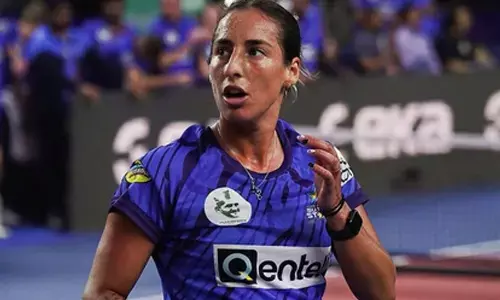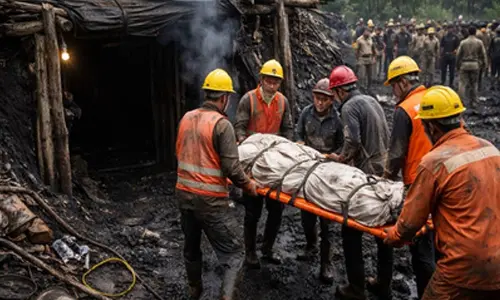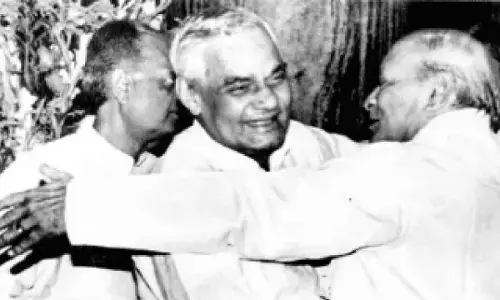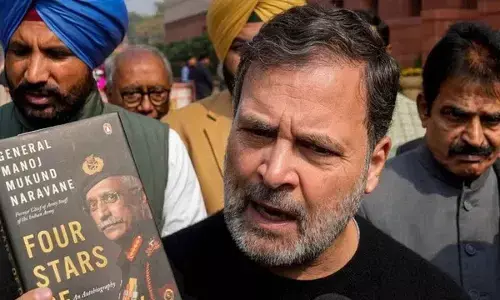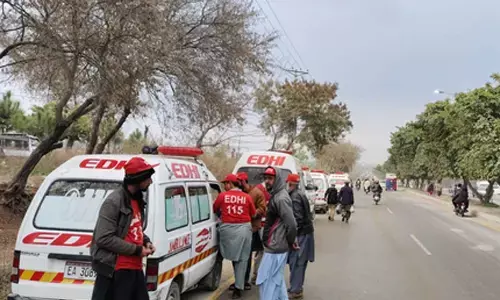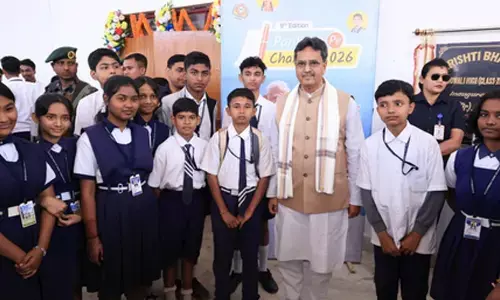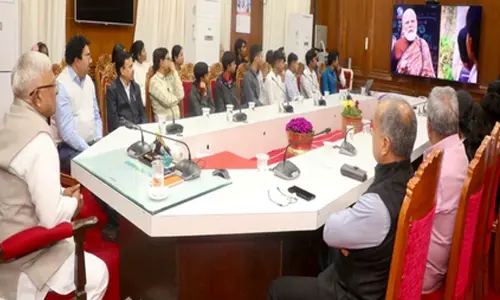MyVoice: Views of our readers 22nd September 2022

MyVoice: Views of our readers 26th October 2022
A great loss to art world
Popular comedian Raju Srivastava passed away in New Delhi at the age of 58. He brightened people's lives with laughter, humour and positivity. He left too soon but he will continue to live in the hearts of countless people due to his rich work over the years. Apart from being a seasoned artiste, he was also a very wonderful human being. Hew was also very active in the social field. His death is a great loss to the art world.
Divyansha Sharma, Ujjain
A disgraceful move by AP govt
The decision taken by YSRCP government to replace the name of nationally recognised Dr NTR Health University at Vijayawada with Dr YSR, the late Chief Minister of combined Andhra Pradesh and father of Jagan Mohan Reddy, the present CM of AP, by amending the varsity law, is not at all in good taste. YSRCP has proudly changed the name of Krishna District after the legendary NTR's name and now removing his name is a clear disgrace shown to a highly celebrated elegant personality who brought laurels in politics and on tinsel screen as well. People of all walks of life including YSRCP patrons may not acquiesce in this abased decision.
Dr NSR Murthy, Secunderabad
Dementia crisis looming large on India
It is estimated that by 2050 one in five people from low- and middle-income countries will be over 60 years of age. The number of people living with dementia worldwide is expected to double by 2030 and triple by 2050, where the majority will be in developing countries such as India. Data suggests that the annual cost of caring for a person with dementia ranges from Rs 45,600 to Rs 2,02,450 in urban areas and Rs 20,300 to Rs 66,025 in rural areas. These are borne by families as out-of-pocket expenses. Additionally, caregivers or family members report having their work cut back, and nearly a quarter of caregivers are unable to fulfill their work responsibilities and are left behind financially. The resources of the medical sector in the country are also limited. The Indian government recently committed to spend 2.5 per cent of its GDP on health by 2025. However, only 0.05 per cent of the total health care budget is allocated for mental health care. Apart from schemes and laws, there is a lot to be done at the field level. There is little public awareness of the disease. Dementia patients require constant monitoring, behavioral management, and medication due to their symptoms of wandering, aggression, and anxiety. There is a need to recognise that urgent help is needed to prevent them from becoming more financially stressed.The problem is worsening and urgent social, government and other support is needed.
Dr B Keshavulu, Nizamabad
A noble initiative by Stalin govt
The initiative of Tamil Nadu government to provide breakfast to all one to five class students in addition to midday meal is laudable. That CM Stalin saying that such a scheme is not a freebie, but the duty of the government is right. India has a major share of stunted and wasted children. A hungry child cannot focus on his studies. His learning process gets impaired due to acute and chronic malnutrition. If the younger generation fails to grow to its fullest potential, the ultimate loser would be the nation. So apart from the human angle, to provide good nutrition to the children has a social angle also.
Dr DVG Sankararao, Vizianagaram
II
Most of the students who are on the rolls of government schools are from the the poor and the downtrodden, and for such students breakfast at home is a distance dream . Moreover, the parents of such students leave their residences early in the morning for their daily work. So, the students have to come to school with empty stomachs expecting mid-day meal at around 12 noon. But they attend half of the school with hunger. It is estimated that both break fast and mid-day-meal will give nearly 850 calories and 28 grams of protein per day per child. It will certainly resolve the issues like weight, height, anemia and BMI among the wards.
Pratapa Reddy Yaramala, Tiruvuru (AP)
III
This scheme is of immense value and has both tangible and intangible benefits; it will facilitate normal physical growth and improve cognition or learning ability of children from impoverished family backgrounds. It will prevent or at least considerably reduce children dropping out. One must be insensitive and far removed from the reality of poverty to devalue it as freebie, charity or gift while it is actually an entitlement and actualization of the right to food and by extension, the right to life.
G David Milton, Maruthancode(TN)








